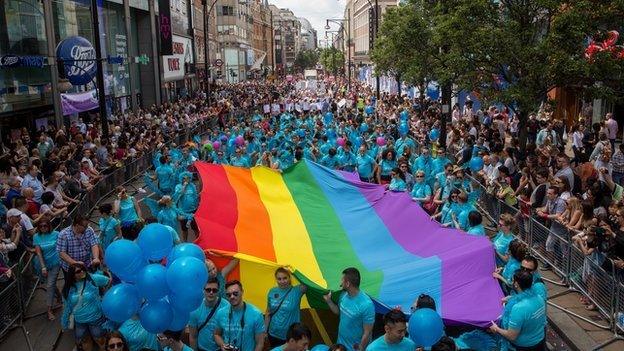Pride in London research: Many LGBT+ people 'hide sexuality'
- Published
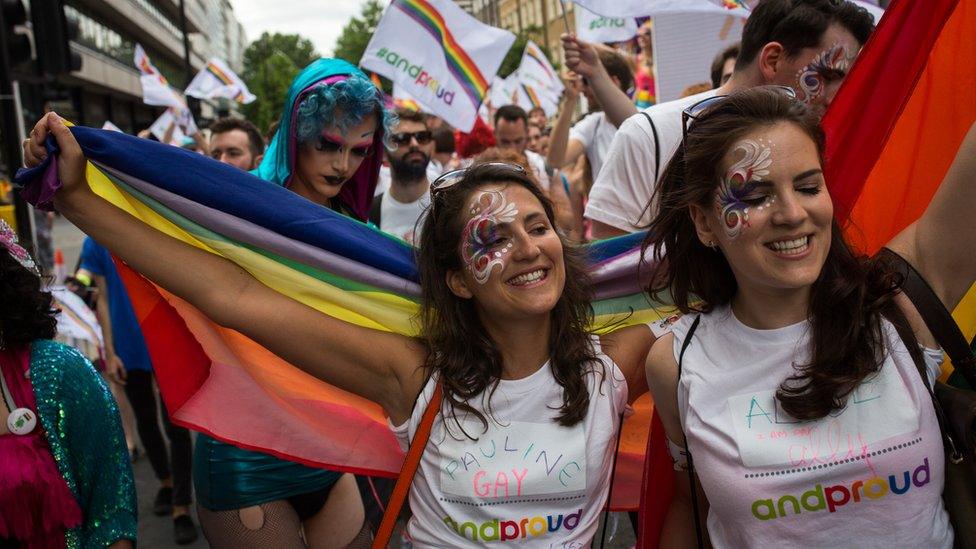
Pride said the findings of the survey were "striking"
A majority of the LGBT+ (lesbian, gay, bisexual and transgender) community feel the need to lie about their gender or sexual identity, a survey suggests.
A poll commissioned by Pride in London asked more than 1,000 LGBT+ people how they felt about discussing their private lives in public.
Of those surveyed, 74% said they felt the need to hide their sexual orientation or gender identity.
Pride said its findings, external were "striking".
LGBT stands for lesbian, gay, bisexual and transgender. The plus sign represents other sexual and gender groups.
The charity - which organises London's annual gay pride event - commissioned a second survey among the general population, which showed a "huge difference" compared with LGBT+ people.
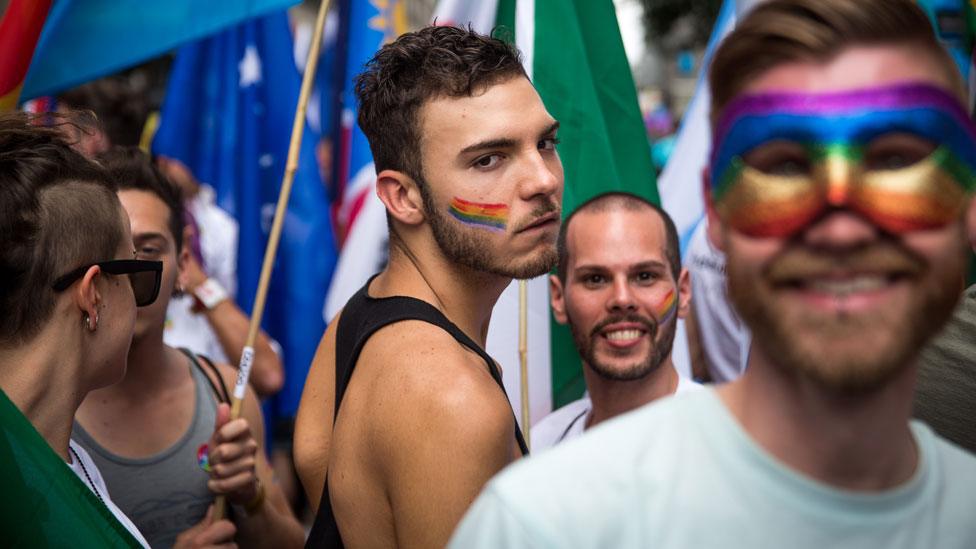
The charity, which commissioned the survey, organises the annual gay pride parade

Case study: Kay O'Hare (not her real name), aged 29, from Sutton
I have to hide the fact I'm a lesbian simply because my parents would disown me. I'm currently engaged but I have to tell lies day in, day out. It kills me.
My eldest brother and his partner know, but they live at the other end of the country and am lucky if I see them once a year.
If I don't have to tell people I'm gay, then I won't, as there's nothing more painful than seeing that disgust in their eyes and in their body language.
About 10 years ago, I tried to tell my mum that I was gay. She pretty much gave me an ultimatum of, "If you want to live under my roof you will be straight, otherwise get out".
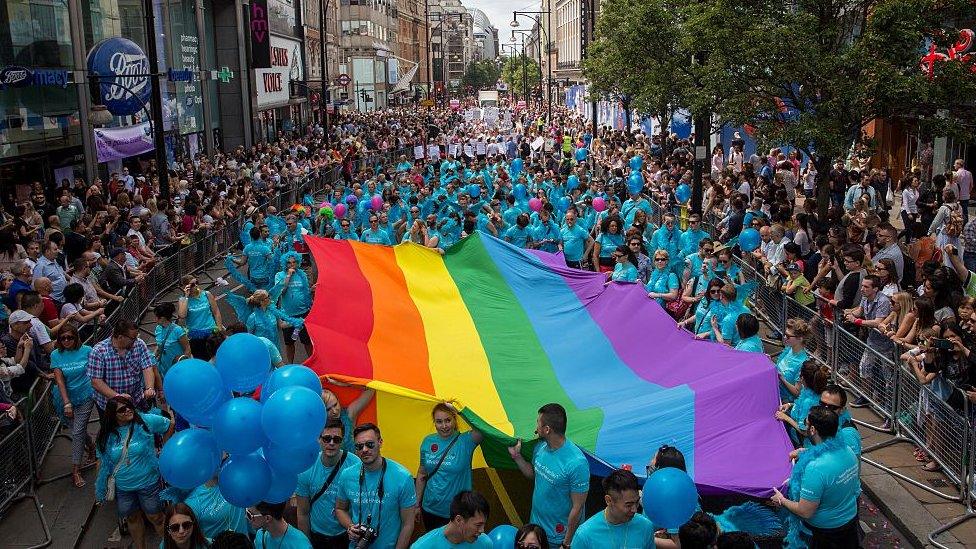
About 1m people are expected at this year's Pride in London parade
She says that it's because we're a Catholic family, but truth be told I think it's more the case of her generation just isn't accepting.
I can't bear the thought of my family being absolutely ashamed of and disgusted with me all because I cannot help the fact that I am a lesbian.
There is a stigma in our society about coming out. Heterosexual couples don't have abuse yelled at them for being straight, so why do we?
A lot of people to this day think that we choose this lifestyle, but we don't.
No one would ever choose to face the hate, stigma and abuse that we get day in and day out, to be victimised just because of who it is we love.
I met my partner in 2013. She is my best friend, my lover, and my soulmate and truly the best thing that has ever happened to me.
We are hoping to get married in either the autumn or the winter of 2018.
We are currently planning the details, but it's hard as all of her family will be in attendance, and I won't have anyone, so it's a balancing act.

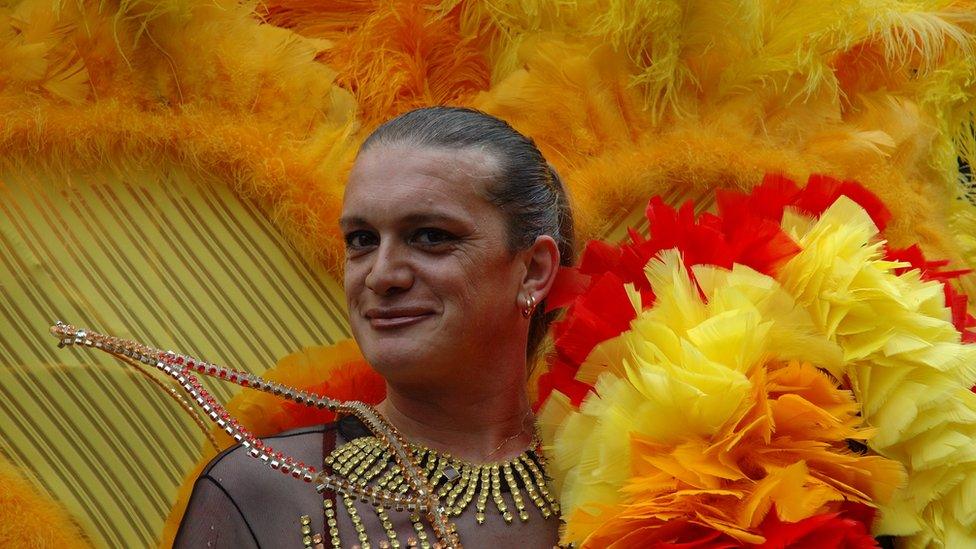
In 2005 more than 25,000 people joined the parade
In particular, a larger proportion of the LGBT+ community had "felt threatened by other people's attitudes and behaviours towards them", and were more likely to experience workplace bullying as a result of their gender.
It found 77% of LGBT+ respondents had revealed their sexuality to friends, while 50% had come out to all their colleagues.

Other findings
2% of the population has been bullied at work because of their gender, compared with 10% of LGBT+ respondents in the survey
77% of LGBT+ respondents said they felt uncomfortable being their true self in public, against 23% of the general population
59% of LGBT+ respondents had felt threatened by other people's attitudes and behaviours towards them, compared with 16% of the wider population
41% of gay men said they would think twice about holding a partner's hand in public, dropping to 5% among the general population

Chair of Pride in London, Michael Salter-Church, said: "Great progress has been made in the name of LGBT+ equality in recent years, but these figures show the striking reason why Pride is still as important as ever".
The annual Pride in London parade takes place on Saturday.
- Published13 June 2016
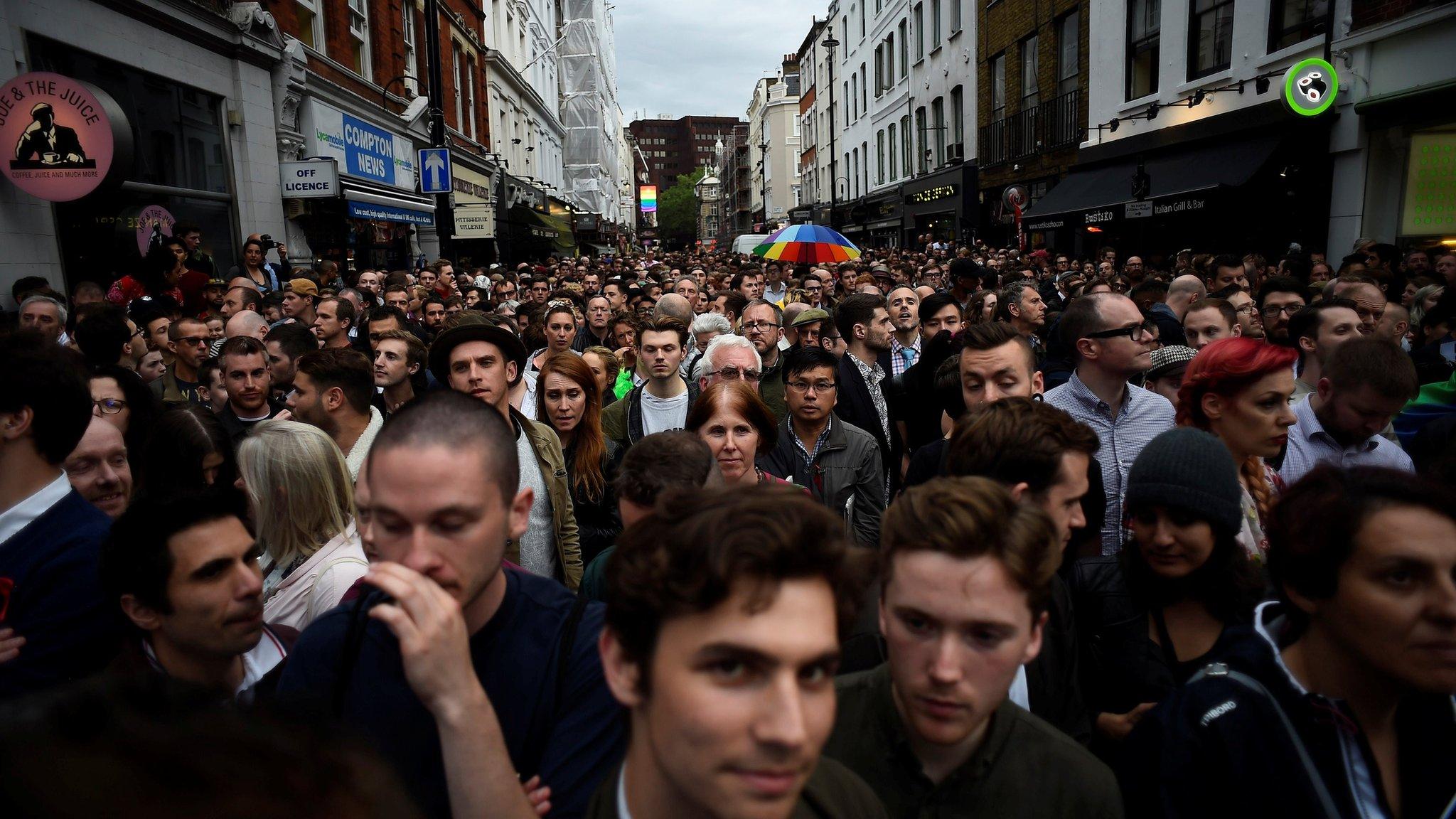
- Published27 June 2015
